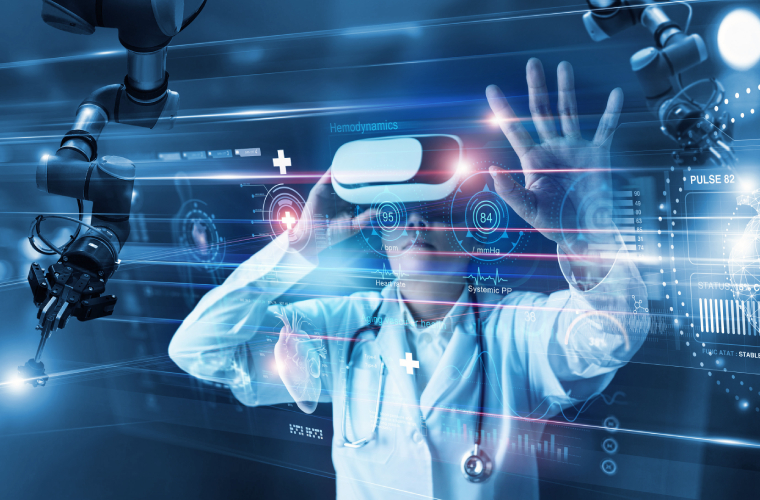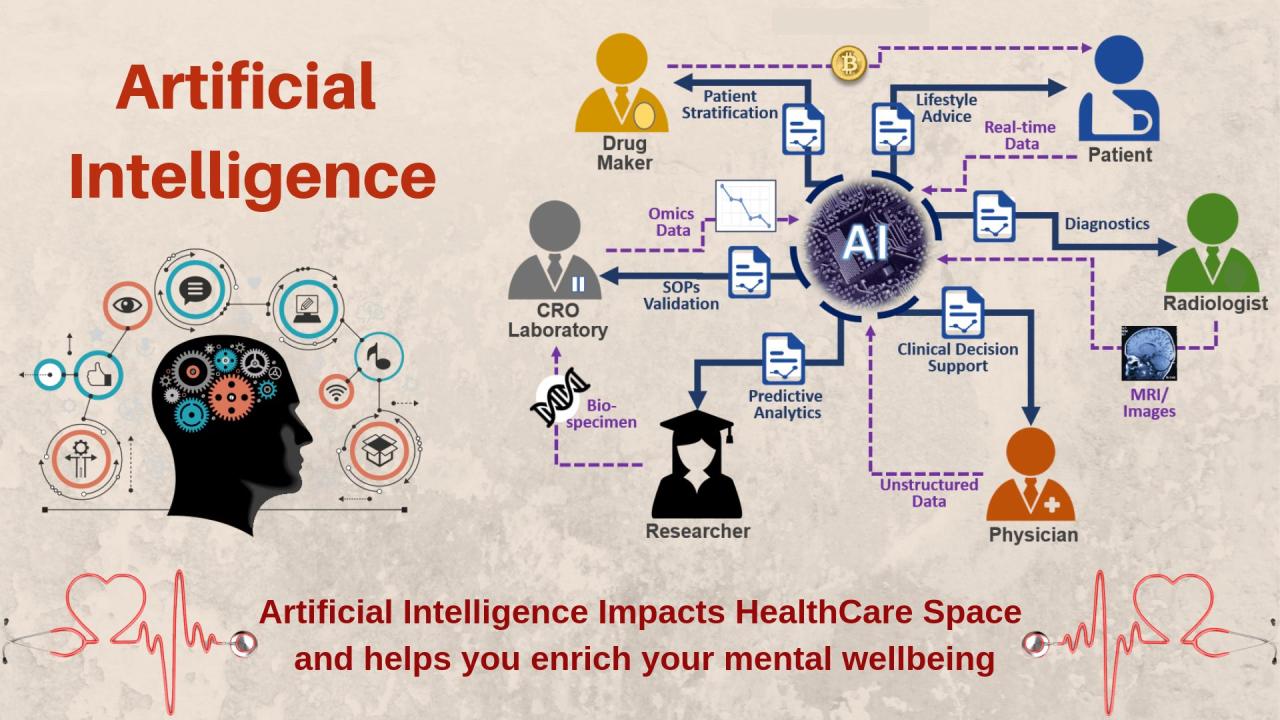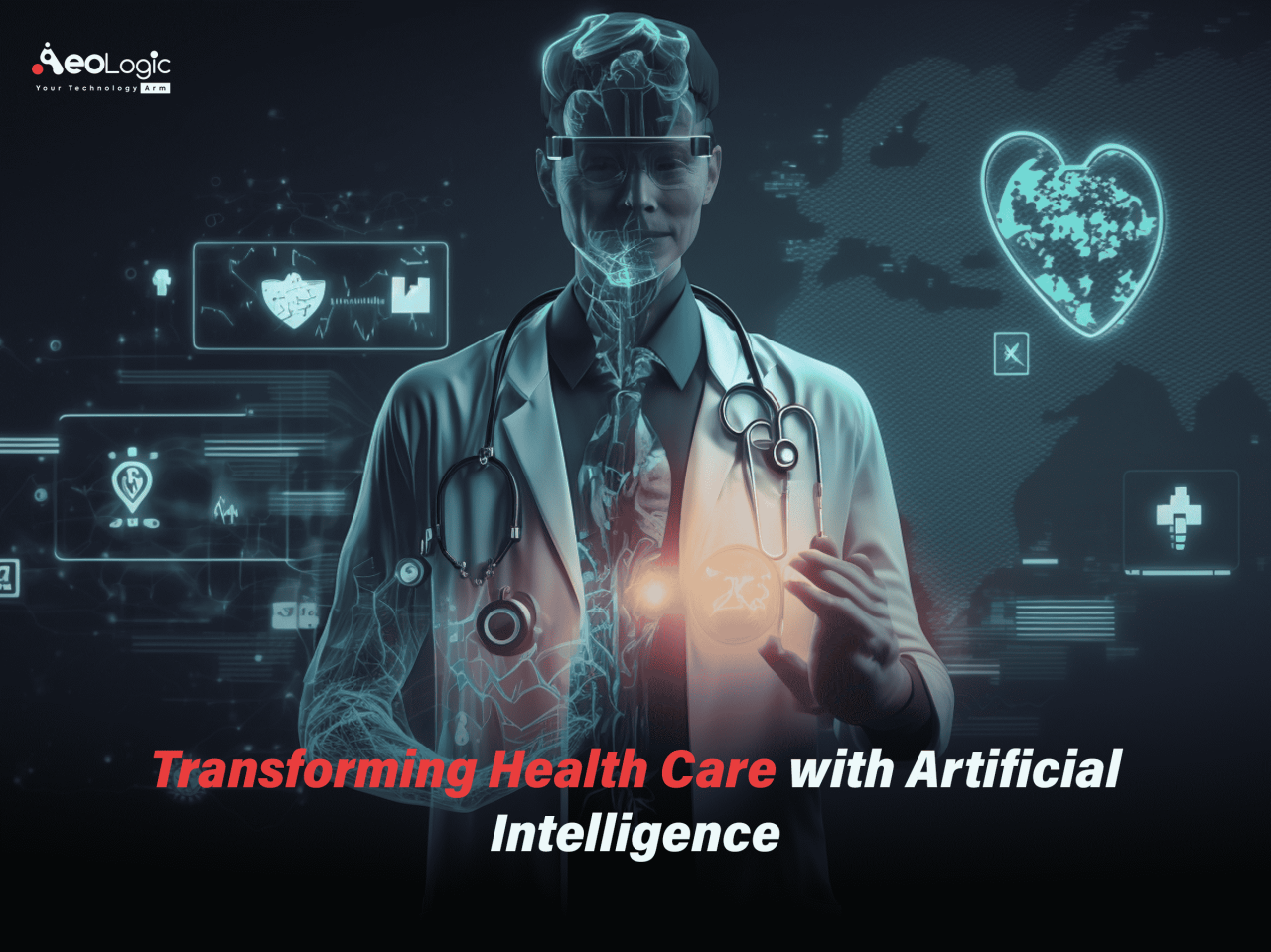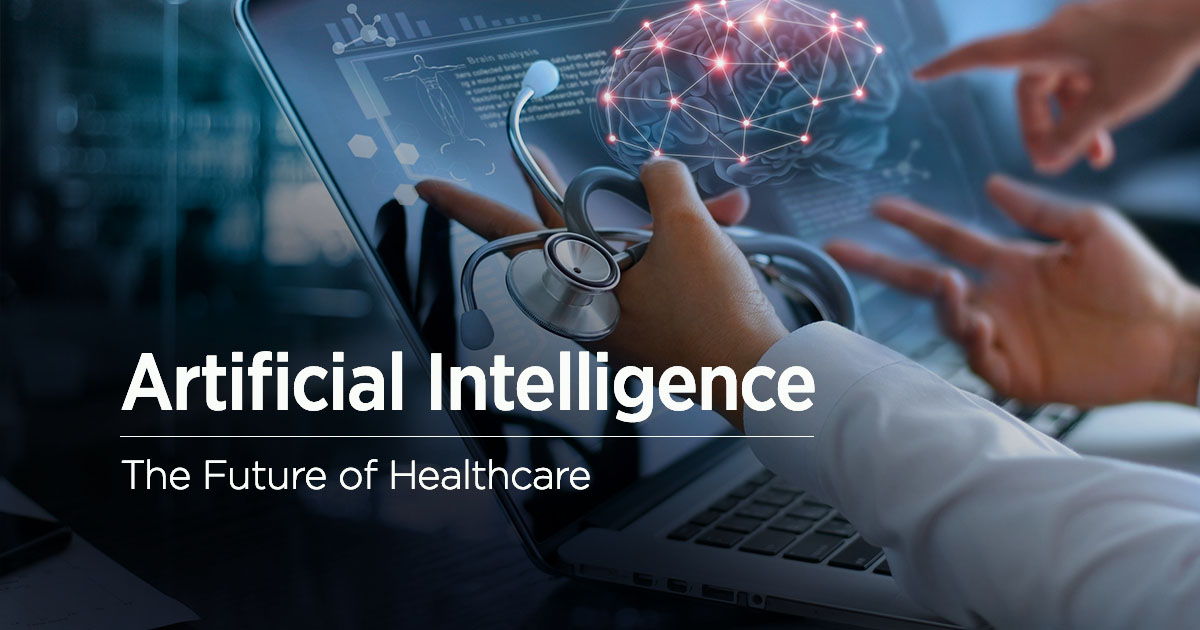Artificial intelligence’s role in improving healthcare and daily well-being is rapidly evolving, transforming how we diagnose diseases, prevent outbreaks, and manage our personal health. From AI-powered diagnostic tools that analyze medical images with unprecedented accuracy to personalized medicine tailored to individual genetic profiles, the impact is undeniable. This exploration delves into the multifaceted ways AI is enhancing both healthcare systems and individual lives, revealing both the remarkable potential and the ethical considerations inherent in this technological revolution.
This journey will examine AI’s contributions across various sectors, including disease prediction, personalized treatments, robotic surgery, mental health support, and even daily wellness tracking through wearable technology. We’ll explore the advantages and limitations of AI applications, addressing common concerns about data privacy and ethical implications. The goal is to provide a comprehensive overview of this transformative technology and its profound impact on our future health and well-being.
AI-Powered Diagnostics and Treatment: Artificial Intelligence’s Role In Improving Healthcare And Daily Well-being

Artificial intelligence (AI) is rapidly transforming healthcare, offering significant advancements in diagnostics and treatment. Its ability to analyze vast amounts of data with speed and accuracy far surpasses human capabilities, leading to improved patient outcomes and more efficient healthcare systems. This section will explore the pivotal role of AI in enhancing diagnostic precision, personalizing treatment plans, and accelerating drug discovery.AI’s impact on medical diagnoses is profound.
By leveraging machine learning algorithms, AI systems can analyze medical images, patient records, and genetic data to identify patterns indicative of disease with remarkable accuracy and speed. This leads to earlier detection, facilitating timely interventions and improving treatment success rates. The speed at which AI can process this information also significantly reduces diagnostic delays, a critical factor in managing time-sensitive conditions.
AI in Image Analysis for Disease Detection
AI algorithms, particularly deep learning models, are revolutionizing image analysis in various medical specialties. Convolutional Neural Networks (CNNs) are particularly effective in processing medical images such as X-rays, CT scans, and MRIs. For example, CNNs are trained on massive datasets of images, learning to identify subtle visual cues associated with diseases like cancer, pneumonia, and diabetic retinopathy. These algorithms can detect anomalies often missed by the human eye, improving diagnostic accuracy and enabling earlier interventions.
Another example is the use of AI in analyzing pathology slides to identify cancerous cells, assisting pathologists in making more accurate and consistent diagnoses. The speed and efficiency gained through AI-powered image analysis significantly reduces diagnostic turnaround time, allowing for quicker treatment decisions.
AI and Personalized Medicine
AI is instrumental in driving the shift towards personalized medicine, tailoring treatments to individual patient characteristics. By analyzing genomic data, lifestyle factors, and medical history, AI algorithms can predict an individual’s risk of developing specific diseases and personalize treatment strategies based on their unique profile. This approach improves treatment efficacy and minimizes adverse effects by selecting the most appropriate therapy for each patient.
Furthermore, AI plays a crucial role in drug discovery and development, accelerating the identification of potential drug candidates and optimizing clinical trials. AI algorithms can analyze vast datasets of molecular information to predict the efficacy and safety of new drugs, reducing the time and cost associated with traditional drug development processes. For instance, AI is being used to identify potential drug targets for various cancers and to predict which patients will respond best to specific therapies.
Comparison of Traditional and AI-Driven Diagnostic Methods
| Disease | Traditional Method | AI-Driven Method | Performance Comparison |
|---|---|---|---|
| Breast Cancer Detection (Mammography) | Radiologist visual inspection | CNN-based image analysis | AI shows improved sensitivity and specificity in detecting subtle lesions, reducing false positives and negatives. Studies show AI can detect cancers up to 20% earlier than radiologists alone. |
| Diabetic Retinopathy | Ophthalmologist examination | AI-powered image analysis of retinal images | AI can automate screening, increasing efficiency and accessibility, particularly in resource-limited settings. Studies suggest comparable or superior accuracy to ophthalmologists in detecting early-stage disease. |
| Lung Cancer Detection (CT Scans) | Radiologist interpretation of CT scans | AI-assisted detection of nodules and lesions | AI can improve the detection rate of small lung nodules, which are often missed by human eyes. This leads to earlier diagnosis and potentially improved survival rates. |
AI in Disease Prevention and Public Health

Artificial intelligence (AI) is rapidly transforming public health initiatives, offering unprecedented capabilities to predict, prevent, and manage diseases on a global scale. Its ability to analyze massive datasets, identify subtle patterns, and predict future trends is revolutionizing our approach to disease surveillance and outbreak response. This section will explore the significant contributions of AI in disease prevention and public health, highlighting its applications in pandemic preparedness and proactive health management.AI’s capacity to analyze vast amounts of data – from genomic sequences to climate patterns and social media trends – allows for the identification of previously unseen correlations and the prediction of outbreaks with greater accuracy and speed than traditional methods.
This predictive power is crucial in mitigating the impact of infectious diseases.
AI’s Contribution to Pandemic Preparedness
AI algorithms can analyze diverse data streams, including epidemiological data, mobility patterns, climate information, and genetic sequences of pathogens, to identify potential disease outbreaks. For example, during the COVID-19 pandemic, AI models were used to predict the spread of the virus based on factors like population density, travel patterns, and social distancing measures. These predictions helped public health officials allocate resources effectively and implement targeted interventions.
Furthermore, AI-powered systems have been used to analyze large-scale genomic data to track the evolution of the virus and identify new variants, facilitating the development of more effective vaccines and treatments. The early detection and rapid response enabled by AI significantly aided in mitigating the pandemic’s severity in certain regions. Another example involves AI’s role in analyzing medical images to detect early signs of infection, thus enabling prompt treatment and containment.
AI-Powered Wearable Devices and Mobile Apps in Proactive Health Management
The proliferation of wearable devices and mobile health (mHealth) applications has created a wealth of personal health data. AI algorithms can process this data to identify individuals at high risk of developing specific diseases, allowing for early intervention and preventive measures. For example, smartwatches can monitor heart rate, sleep patterns, and activity levels, providing insights into cardiovascular health.
AI algorithms can analyze this data to identify individuals at risk of heart disease or stroke, enabling timely medical intervention. Similarly, mobile apps can track dietary habits, physical activity, and stress levels, providing personalized recommendations to improve overall well-being and reduce the risk of chronic diseases like diabetes and obesity. Data collected includes, but is not limited to, physiological measurements (heart rate, blood pressure, sleep quality), activity levels, dietary intake, location data (for understanding exposure risks), and self-reported symptoms.
This data, when analyzed with AI, can generate personalized risk assessments and recommendations for lifestyle changes, preventive screenings, and early medical interventions.
Ethical Considerations of Using AI in Public Health Surveillance and Data Privacy, Artificial intelligence’s role in improving healthcare and daily well-being
The use of AI in public health surveillance raises several important ethical considerations. It is crucial to ensure that the implementation of AI systems adheres to high ethical standards to maintain public trust and protect individual rights.
- Data Privacy and Security: AI systems rely on vast amounts of personal health data, raising concerns about data breaches and unauthorized access. Robust security measures and anonymization techniques are essential to protect individual privacy.
- Algorithmic Bias and Fairness: AI algorithms can perpetuate existing societal biases if the data used to train them is not representative of the entire population. This can lead to disparities in access to healthcare and unequal treatment.
- Transparency and Explainability: It is important to understand how AI algorithms make their predictions. Lack of transparency can erode public trust and hinder accountability.
- Informed Consent and Data Ownership: Individuals should be fully informed about how their data will be used and have control over their personal information. Clear guidelines on data ownership and usage are crucial.
- Accountability and Responsibility: Clear lines of responsibility should be established for the outcomes and decisions made by AI systems in public health.
AI for Enhanced Patient Care and Well-being

Artificial intelligence is rapidly transforming healthcare, extending beyond diagnostics and prevention to significantly enhance patient care and overall well-being. AI’s ability to process vast amounts of data, learn patterns, and make predictions allows for personalized interventions, improved efficiency, and ultimately, better health outcomes. This section explores the key applications of AI in improving patient experience and care delivery.
AI in Robotic Surgery and Minimally Invasive Procedures
AI is revolutionizing surgical procedures, enabling greater precision, reduced invasiveness, and faster recovery times for patients. Robotic surgery systems, guided by AI algorithms, offer surgeons enhanced dexterity, visualization, and control. For instance, the da Vinci Surgical System uses robotic arms controlled by a surgeon to perform complex procedures with smaller incisions. The AI component may assist in real-time image analysis, providing surgeons with crucial information such as tissue identification and optimal instrument placement.
Another example is the use of AI-powered image guidance systems during minimally invasive procedures, allowing surgeons to navigate complex anatomical structures with improved accuracy. These advancements lead to reduced trauma, less blood loss, shorter hospital stays, and faster patient recovery, ultimately improving patient well-being. Benefits include decreased risk of complications, reduced pain, and improved cosmetic outcomes.
AI-Powered Virtual Assistants and Chatbots in Patient Engagement
AI-powered virtual assistants and chatbots are improving patient engagement and access to healthcare information by providing 24/7 availability, personalized support, and convenient communication channels. These tools can answer frequently asked questions, schedule appointments, provide medication reminders, and offer personalized health advice based on individual patient data. For example, Babylon Health uses a chatbot to triage patients, providing initial assessments and guiding them to appropriate care.
Similarly, Ada Health leverages AI to analyze patient symptoms and provide preliminary diagnoses, helping patients understand their condition and seek necessary medical attention. The benefits include increased patient satisfaction, improved adherence to treatment plans, and reduced burden on healthcare providers. These virtual assistants can also provide education and support, promoting proactive health management and improved patient outcomes.
Advantages and Disadvantages of AI-Powered Telehealth Platforms
AI-powered telehealth platforms offer remote patient monitoring, virtual consultations, and remote diagnostics, expanding access to healthcare, particularly for patients in remote areas or with limited mobility. However, it’s crucial to consider both the advantages and disadvantages of these platforms.
| Advantage | Disadvantage | Example | Mitigation Strategy |
|---|---|---|---|
| Increased access to care for remote or underserved populations | Potential for digital divide and unequal access based on technology availability | Patients in rural areas gaining access to specialists via video consultations. | Government initiatives to improve internet infrastructure and provide subsidized devices. |
| Improved patient engagement and adherence to treatment plans through remote monitoring | Concerns about data privacy and security breaches | Continuous monitoring of vital signs for patients with chronic conditions. | Robust data encryption and compliance with relevant regulations (e.g., HIPAA). |
| Reduced healthcare costs through efficient resource utilization | Potential for misdiagnosis or inaccurate data interpretation due to limitations of AI algorithms | Reduced need for in-person visits, lowering transportation and hospital costs. | Human oversight and validation of AI-generated results by healthcare professionals. |
| Enhanced convenience and flexibility for patients | Lack of physical examination and personal interaction, potentially impacting diagnosis accuracy | Patients scheduling appointments and receiving consultations at their convenience. | Hybrid models combining telehealth with in-person visits where necessary. |
AI and Mental Health
Artificial intelligence is rapidly transforming the landscape of mental healthcare, offering innovative solutions for diagnosis, treatment, and patient management. AI’s ability to process vast amounts of data and identify subtle patterns makes it a powerful tool for addressing the complexities of mental illness, which often present with nuanced and subjective symptoms. This section explores the significant contributions of AI in enhancing mental health services and improving patient outcomes.AI algorithms analyze speech patterns and text to detect signs of mental health issues by identifying linguistic markers associated with specific conditions.
Natural Language Processing (NLP) techniques are employed to analyze the content, tone, and structure of spoken and written language, looking for indicators such as increased negativity, emotional volatility, or changes in communication style. For example, an algorithm might detect an increased frequency of negative words, shorter sentences, or a decline in the use of personal pronouns in a patient’s text messages or transcribed therapy sessions, potentially suggesting symptoms of depression.
These analyses, however, are not diagnostic in themselves and should always be interpreted by a qualified mental health professional.
AI-Powered Mental Health Screening Tools
Several AI-powered tools are being developed and implemented to aid in the early detection and screening of mental health conditions. These tools often use machine learning algorithms trained on large datasets of patient data, including clinical records, survey responses, and social media posts. For instance, some apps analyze user-provided text data to assess risk factors for depression or anxiety, providing personalized feedback and resources.
Other tools utilize voice analysis to detect subtle vocal changes indicative of mental distress. The accuracy and effectiveness of these tools are constantly being refined and validated through rigorous research and clinical trials. It is crucial to remember that these tools serve as a support for mental health professionals, not a replacement for human expertise.
AI in Personalized Mental Health Interventions
AI is playing a crucial role in developing personalized mental health interventions and therapies tailored to individual patient needs. By analyzing patient data, AI algorithms can identify the most effective treatment approaches for specific individuals, optimizing the chances of successful outcomes. For example, AI-powered chatbots can provide personalized cognitive behavioral therapy (CBT) interventions for anxiety, offering tailored exercises and coping strategies based on the user’s responses and progress.
Similar applications are being developed for depression and PTSD, offering customized interventions such as mindfulness exercises, exposure therapy techniques, and stress management strategies. The ability to adapt to individual needs and preferences enhances engagement and adherence to treatment plans.
Visual Representation of AI-Driven Patient Progress Tracking
Imagine a dashboard displaying a patient’s progress throughout therapy. The central element is a line graph showing a patient’s reported symptom severity over time, with different colored lines representing various symptoms like anxiety, depression, or sleep disturbance. The graph’s y-axis represents severity (e.g., on a scale of 1 to 10), and the x-axis represents the time elapsed since the start of therapy.
Below the graph, key metrics such as average daily mood score, sleep quality, and medication adherence are displayed numerically, updating in real-time based on patient-reported data and sensor readings (if applicable). A section to the right could showcase a heatmap visualization of the patient’s emotional responses throughout therapy sessions, highlighting patterns and triggers. Finally, a summary section at the bottom provides concise, actionable insights for the therapist, such as areas of improvement and potential adjustments to the treatment plan.
This dashboard provides a clear, holistic view of patient progress, allowing for data-driven decision-making and more effective therapy.
AI in Daily Life and Well-being

Artificial intelligence is rapidly transforming how we approach our daily lives, extending its influence beyond healthcare to encompass personal well-being and self-improvement. AI-powered tools and applications are increasingly integrated into our routines, offering personalized insights and support for physical health, nutrition, sleep, and stress management. This section explores the significant role AI plays in enhancing our daily well-being.
AI-Powered Fitness Trackers and Smartwatches: Contributions to Physical Health
AI-powered fitness trackers and smartwatches collect a wealth of physiological data, providing users with detailed insights into their activity levels, sleep patterns, and overall health. These devices utilize sophisticated algorithms to analyze data such as heart rate, steps taken, calories burned, and sleep stages. This data is then used to generate personalized recommendations, track progress toward fitness goals, and even detect potential health issues.
For example, a smartwatch might detect an irregular heartbeat, prompting the user to seek medical attention. Many applications also integrate with other health apps, providing a comprehensive view of one’s health status. The data collected allows users to monitor their progress, identify areas for improvement, and make informed decisions about their lifestyle choices. Popular examples include Fitbit, Apple Watch, and Garmin devices, each leveraging AI to provide personalized fitness coaching and health monitoring.
AI in Personalized Nutrition Plans and Healthy Eating Habits
AI is revolutionizing the field of nutrition by enabling the creation of personalized dietary plans tailored to individual needs and preferences. AI-powered diet and nutrition apps analyze user-provided data, such as dietary habits, health goals, allergies, and preferences, to generate customized meal plans, recipes, and nutritional guidance. These apps often incorporate features such as calorie tracking, macronutrient analysis, and ingredient scanning.
For example, apps like Lose It!, MyFitnessPal, and Cronometer utilize AI algorithms to suggest recipes and track food intake, providing personalized feedback and recommendations. Furthermore, AI can help identify potential nutritional deficiencies or imbalances, alerting users to potential health risks and suggesting dietary adjustments. The personalized nature of these AI-powered tools empowers individuals to make informed choices about their diet and achieve their health goals more effectively.
AI’s Impact on Sleep Quality and Stress Management: A Comparative Analysis
AI’s influence on sleep quality and stress management presents both advantages and disadvantages.
Positive Aspects:
- AI-powered sleep trackers analyze sleep patterns, identifying areas for improvement and offering personalized recommendations for better sleep hygiene.
- AI-driven meditation and mindfulness apps provide guided sessions tailored to individual needs, helping to reduce stress and improve mental well-being.
- AI algorithms can detect patterns indicative of sleep disorders, enabling early intervention and treatment.
- Smart home devices can create optimal sleep environments by adjusting lighting, temperature, and noise levels based on AI-driven analysis of user preferences and sleep cycles.
Negative Aspects:
- Over-reliance on AI-powered sleep trackers can lead to anxiety and pressure to achieve “perfect” sleep.
- The accuracy of AI-driven sleep analysis can vary, potentially leading to misinterpretations and incorrect recommendations.
- Data privacy concerns related to the collection and use of sensitive sleep data remain a significant challenge.
- The potential for AI to exacerbate existing anxieties about sleep quality needs careful consideration.
Last Point

The integration of artificial intelligence into healthcare and daily life presents an unprecedented opportunity to improve human health and well-being. While challenges remain, particularly regarding ethical considerations and data privacy, the potential benefits are immense. From more accurate diagnoses and personalized treatments to proactive disease prevention and improved mental health support, AI is poised to revolutionize how we approach health and wellness.
Continued responsible development and implementation will be crucial in harnessing the full power of AI for the benefit of all.

